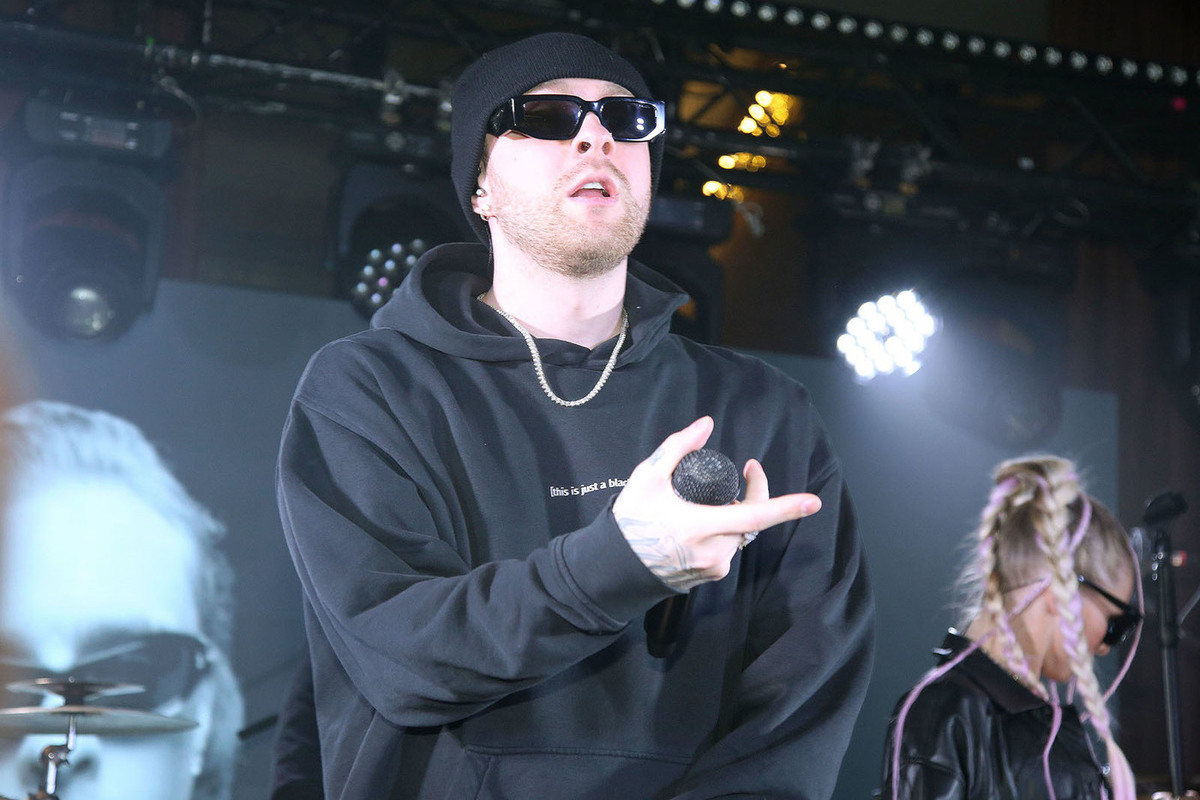They demanded 15 million from Yegor Creed for swearing
[ad_1]

The singer is again accused of immoral songs
Pop stars and rappers are now the most unreliable and suspicious celebrities. This is exactly the impression one gets when almost every day some artist is proposed to be banned, prosecuted or fined. Today it became known about a new lawsuit against Yegor Creed.
The rapper was reminded of an interview found on YouTube and the song Pussy Boy. Both contain obscene language, for which they demand compensation of fifteen million rubles. A lawsuit demanding payment for moral damages from the interview and the track was filed by the head of the religious group “Brotherhood of Morozov-Zlatoust” Alexander Morozov.
It must be admitted that this is not the first time that Yegor Creed has become the object of attention of those who see great harm for young people in his music and other business activities. At the end of last year, the singer filed a lawsuit against the head of the Safe Internet League, Ekaterina Mizulina, after the official accused him of advertising online casinos. Nothing is known yet about how this case is progressing, but the singer’s lawyers intend to file counterclaims in response to any unfounded accusation by their client.
Based on how events unfolded in other cases, it can be assumed that it is quite difficult to obtain compensation for a song that categorically does not suit the plaintiff. A manager who worked with a variety of artists, on condition of anonymity, shared his thoughts on this matter with MK. According to our source, any decision can now be expected from the court, but the dismissal of the billion-dollar lawsuit brought against the organizers of the “naked” party looks like a kind of healthy signal.
After the scandalous event, some of its participants were checked for tax violations and quite large financial claims were made. However, the intention to force the party organizers to pay for something that does not suit someone, but is not a violation of the law, remained the intention.
Creed’s song Pussy Boy, mentioned in Morozov’s lawsuit, was released in 2021 on an album of the same name. The track is marked with a sign indicating that it contains obscene language. Thus, both the artist and the streaming platforms on which the song is posted have fulfilled all the requirements necessary in this situation.
The question of how immoral the song itself is can be a source of debate. The track is difficult to recommend for careful study in music lessons in primary and secondary schools. And the corresponding marking warns about this. Of course, even children can use streaming, and a small letter “e” is unlikely to stop them (rather, on the contrary.
Probably, Mr. Morozov is right in his own way when he talks about moral harm, but in this situation, of course, it is better to sue not with the artist (he has the right to compose and record whatever he deems necessary within the framework of the current legislation), but with the industry , which distributes this music. But it is unlikely that the legal battle between the Morozov-Zlatoust Brotherhood and streaming platforms owned by large business structures will bring the desired millions to the plaintiffs. Moreover, from the point of view of the hype around the process (there is a suspicion that the hype is usually the most desirable part of the procedure for those who file such lawsuits), it is much more interesting if the defendant is a popular artist.
The claim has now been accepted for consideration. Making predictions in the current situation is a hopeless matter, but if you use common sense, you can assume that Mr. Morozov doesn’t have much of a chance of getting fifteen million for a song that everyone has already forgotten. However, court verdicts have recently been unpredictable, like the endings of some detective stories.
In parallel with the battle “Morozov vs. Creed,” the process “Veterans of Russia” against the singer Itsyk Tsyper is now unfolding (according to the passport of Igor Tsyba). The artist had the imprudence to perform the song “Smoke,” which suddenly became a big hit—at the moment, the number of video views is rapidly moving towards ten million.
Vigilant social activists heard drug propaganda in the song and demand that the track be banned in Russia. One can already imagine how all sorts of pundits, during a linguistic examination of the song, are trying to assess the danger for the local population of conclusions like “Smoke, well, it’s not like dung.” Why not a comedy?
[ad_2]
Source link








